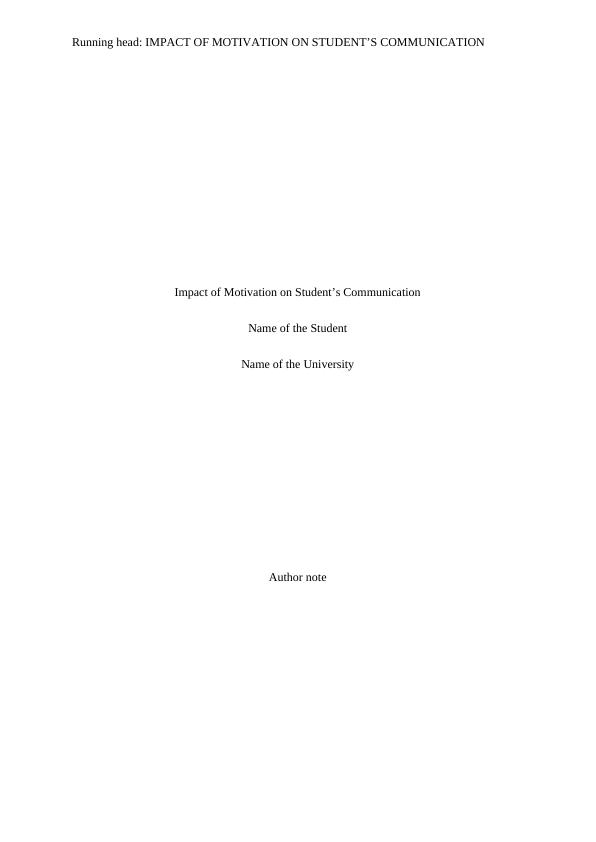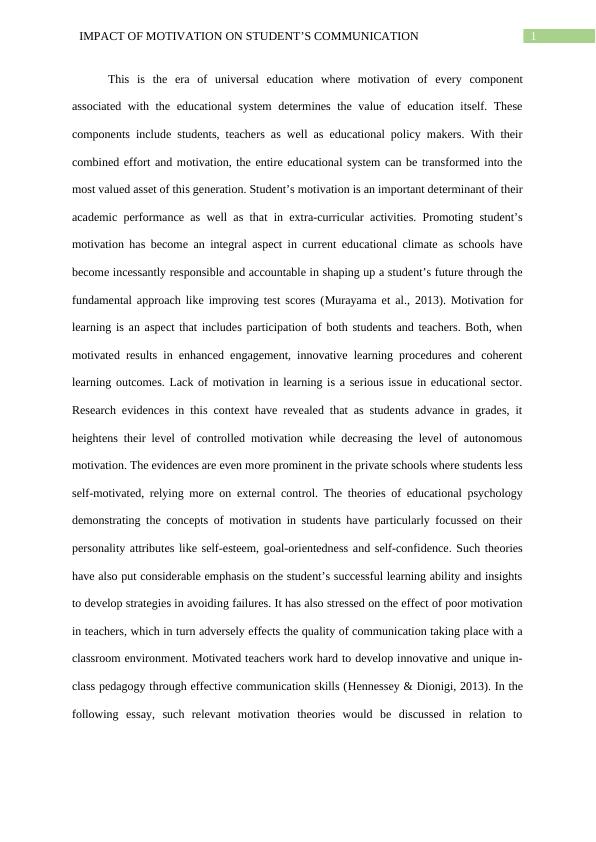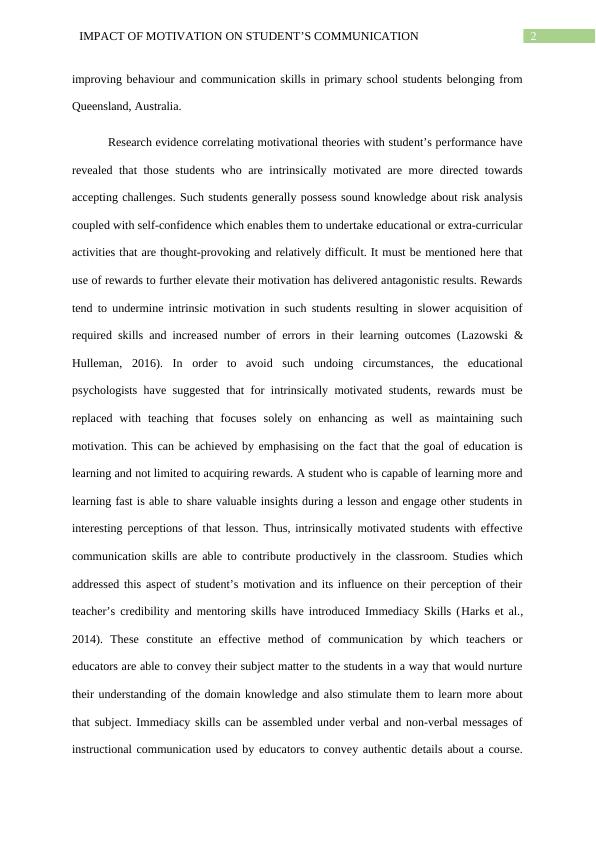Impact of Motivation on Student’s Communication
Developing an essay structure with flexibility in choosing a specific topic related to motivation and critically examining theories.
9 Pages2547 Words75 Views
Added on 2023-06-03
About This Document
This essay discusses the impact of motivation on student's communication skills and behaviour in primary schools in Queensland, Australia. It explores various motivational theories and their correlation with student performance, as well as the role of teachers in promoting motivation and effective communication in the classroom.
Impact of Motivation on Student’s Communication
Developing an essay structure with flexibility in choosing a specific topic related to motivation and critically examining theories.
Added on 2023-06-03
ShareRelated Documents
End of preview
Want to access all the pages? Upload your documents or become a member.
Motivation in Academic Setting: Types and Techniques
|5
|682
|130
Rewards and Motivation in Primary Education
|5
|1068
|155
Motivation and Academic Performance in Tertiary Education
|2
|590
|403
Theories, Principles, and Models of Learning and Learning Preferences
|20
|5063
|499
Improving Self Efficiency in Students: Core Competencies, Attributes, Strategies and Feedback
|7
|1540
|176
Music Education Approaches: Orff, Kodaly and Composition
|14
|2622
|384



